A Dazzling Gallery Exhibition of Andy Warhol’s Photographs Just Opened in Paris—See Images Here
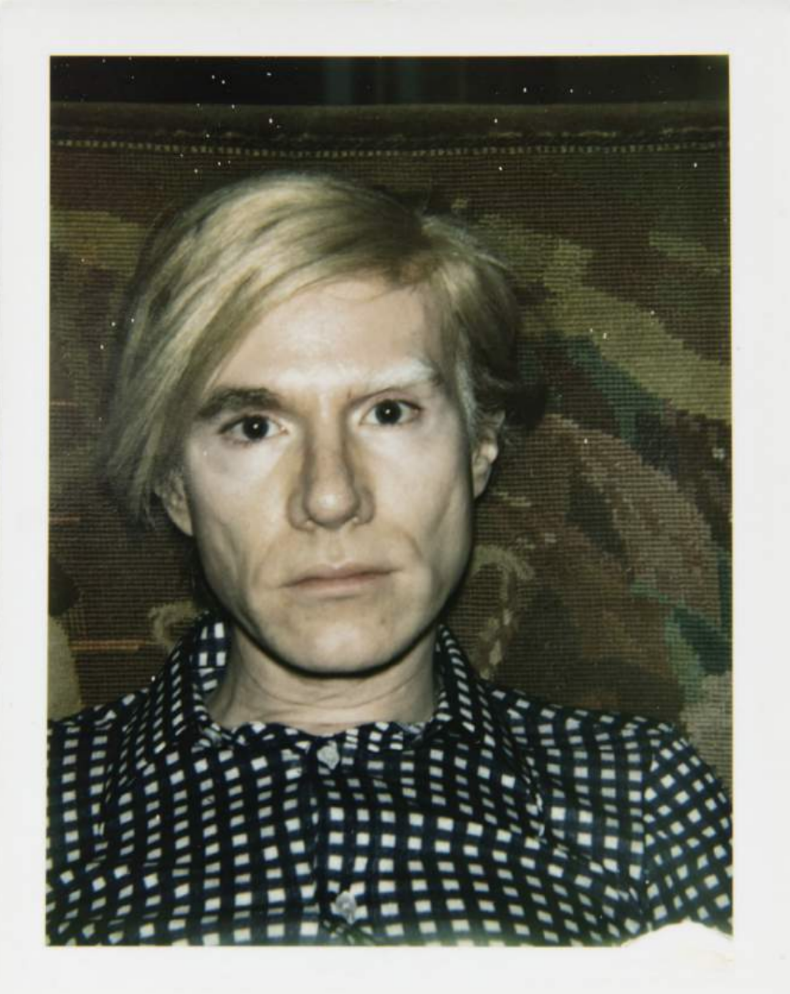

Artnet Gallery Network

A consummate chronicler of celebrity from 1958 until his death, in 1987, Andy Warhol was rarely seen without a camera. For decades, his SX-70 Polaroid camera was always close at hand. In the late 1970s, he picked up a 35-mm camera he used to take unique silver gelatin prints, which he almost always printed as 8-by-10-inch black-and-white photographs.
The medium was fundamental to Warhol’s practice—many of his iconic silkscreens are based on his own photographs—and, in recent years, scholars have increasingly focused on its significance. Now, Paris’s Galerie Italienne will give fans of the Pop artist reason to rejoice. The gallery’s new show, “Andy Warhol: Instantanés,” marks the largest gallery exhibition of Warhol’s photographs in France to date.

Andy Warhol, Grace Jones (1984). Courtesy of Hedges Projects and Jack Shainman Gallery.
The expansive exhibition touches on various themes and techniques that Warhol explored in photography, from his famous Polaroids and photo-booth portraits to more obscure works, like silver gelatin prints, a collection of nudes from his “Sex Parts & Torsos” series, and even collages. The exhibition will also feature several of his 16mm films from the 1960s.
The works on view come from both the collection of James Hedges, founder of Hedges Projects, and Jack Shainman Gallery. Hedges, who is based in West Hollywood, is considered one of the preeminent Warhol photography collectors. Growing up in Tennessee, Hedges said he was first captivated by Warhol’s glamorous depictions of New York City in issues of Interview magazine.
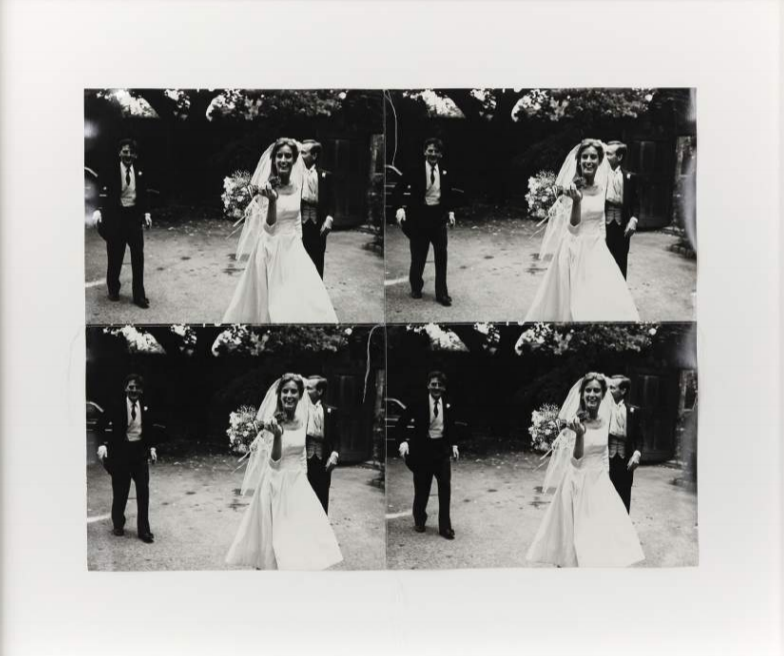
Andy Warhol, Wedding (1980). Courtesy of Hedges Projects and Jack Shainman Gallery.
“My first Warhol purchase was a Hot Pink Marilyn Reversal painting which I bought from St. Louis art dealer Ronnie Greenberg, father of Jeanne Greenberg Rohatyn of Salon 94,” Hedges wrote in an email. “Once I learned about the relevance of Warhol’s use of the camera and photography’s role as source material for nearly all his works, I began to collect Polaroids. But today, I have collected all six different areas of the artist’s film-based practice.”
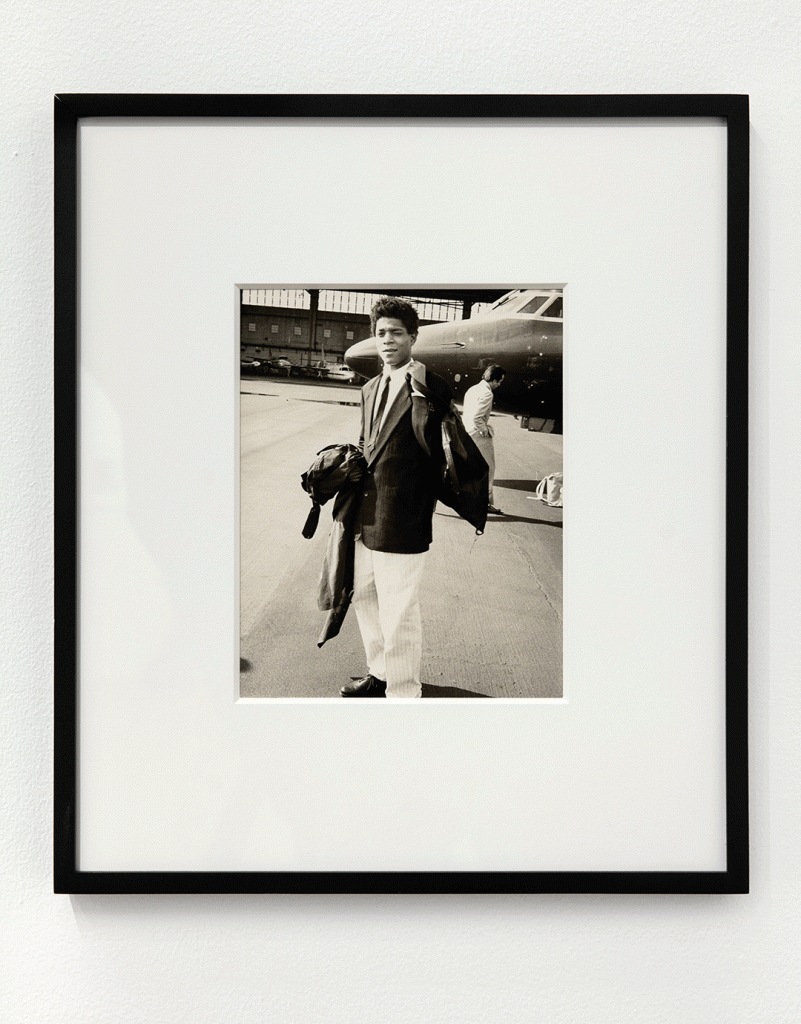
Andy Warhol, Jean-Michel Basquiat & Private Jet (1983). Courtesy of Hedges Projects and Jack Shainman Gallery.
For fans of Warhol’s practice, one important aspect of the show will be a focus on Warhol’s lesser-known “stitched photographs,” which consist of black-and-white prints held together by threads. Warhol’s final exhibition, in January 1987, just six weeks before his death, included numerous stitched photograph examples.
“I find Warhol’s stitched photos to be the most important aspect of his photography practice, and indeed, some of his most important works overall. Warhol made approximately 500 of these stitched works in the 1980s,” said Hedges.
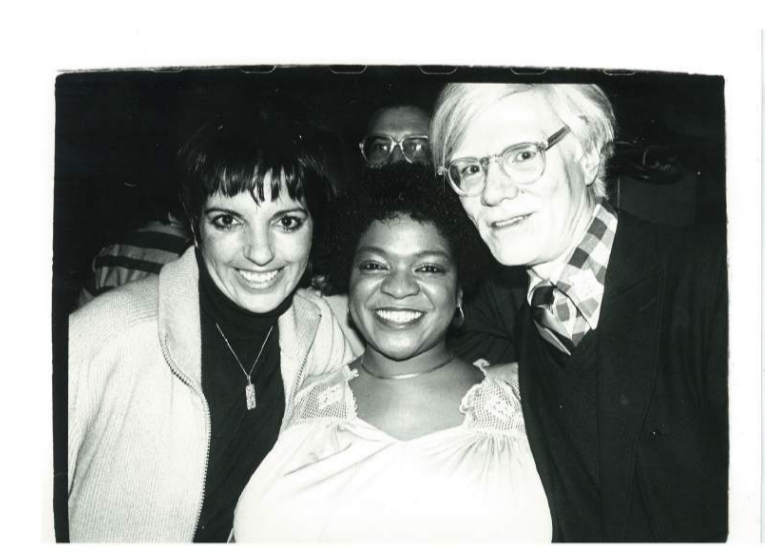
Andy Warhol, Liza Minnelli, Nell Carter, and Andy Warhol (1979). Courtesy of Hedges Projects and Jack Shainman Gallery.
The exhibition provides a fascinating window into the breadth and sense of experimentation of Warhol’s photographic practice. “Virtually every painting, print, and most works on paper began their life as a photo study. Initially, Warhol even used Hollywood film stills or publicity shots of subjects like Marilyn Monroe, Elvis, and Marlon Brando,” Hedges said. “The fact is that Warhol used a camera as part of his daily social interactions over the course of four decades. It was integral to his interactions and his art-making process.”
See more images from “Andy Warhol: Instantanés” below.
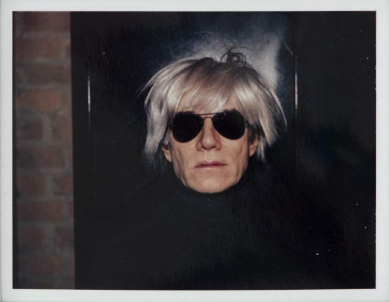
Andy Warhol, Self-Portrait in Fright Wig (1986). Courtesy of Hedges Projects and Jack Shainman Gallery.

Andy Warhol, Bananas (1978). Courtesy of Hedges Projects and Jack Shainman Gallery.
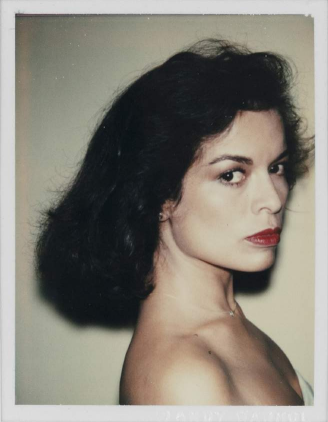
Andy Warhol, Bianca Jagger (1979). Courtesy of Hedges Projects and Jack Shainman Gallery.

Andy Warhol, Shoes (1981). Courtesy of Hedges Projects and Jack Shainman Gallery.
“Andy Warhol: Instantanés” is on view at Galerie Italienne through April 10, 2021.